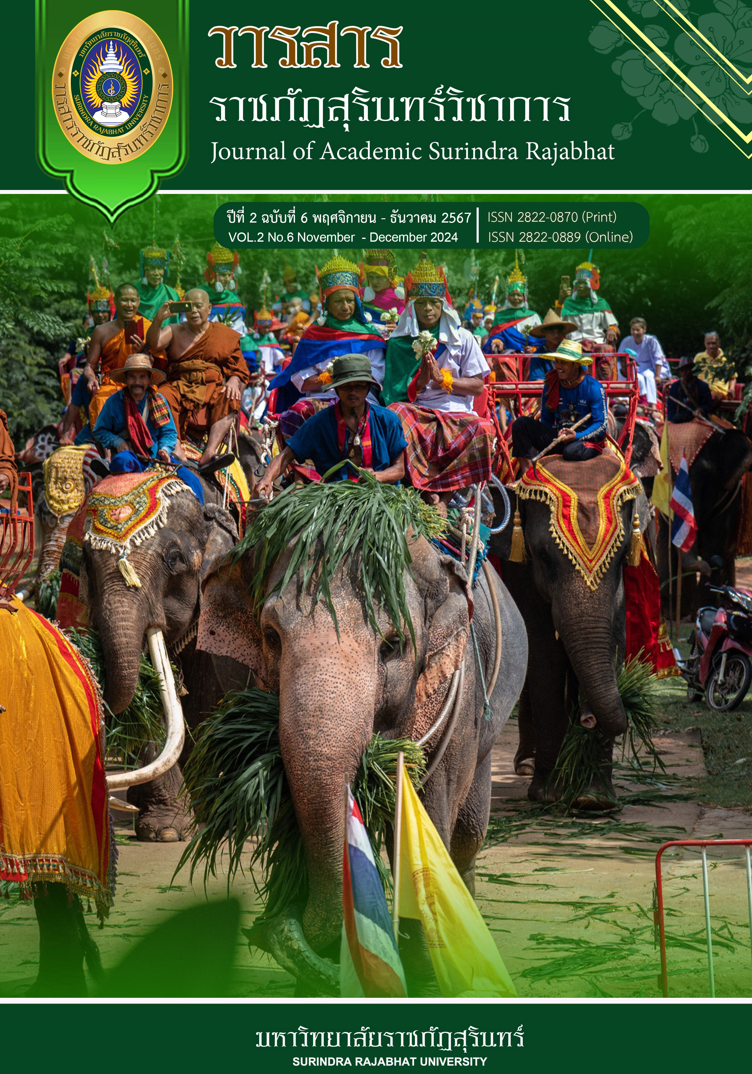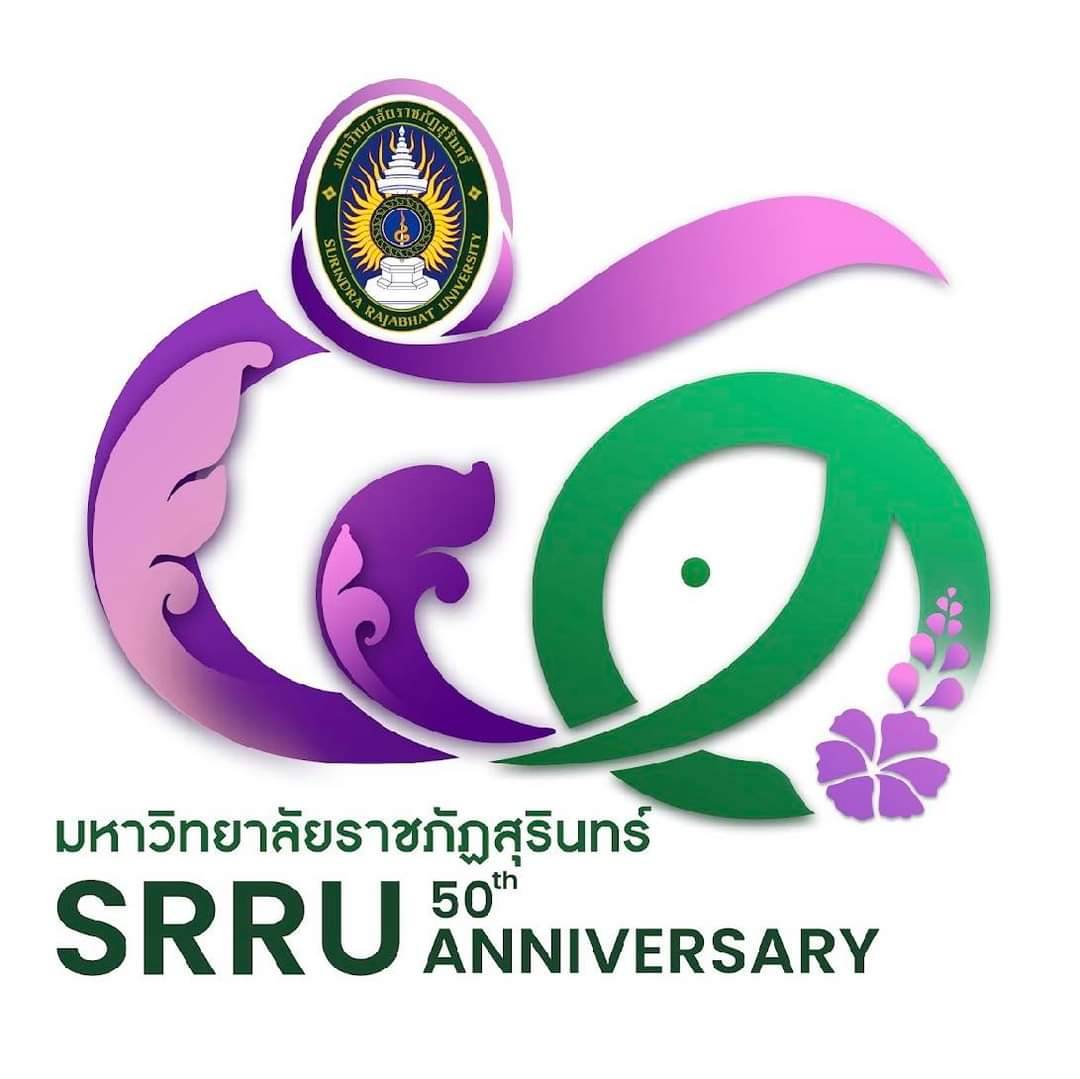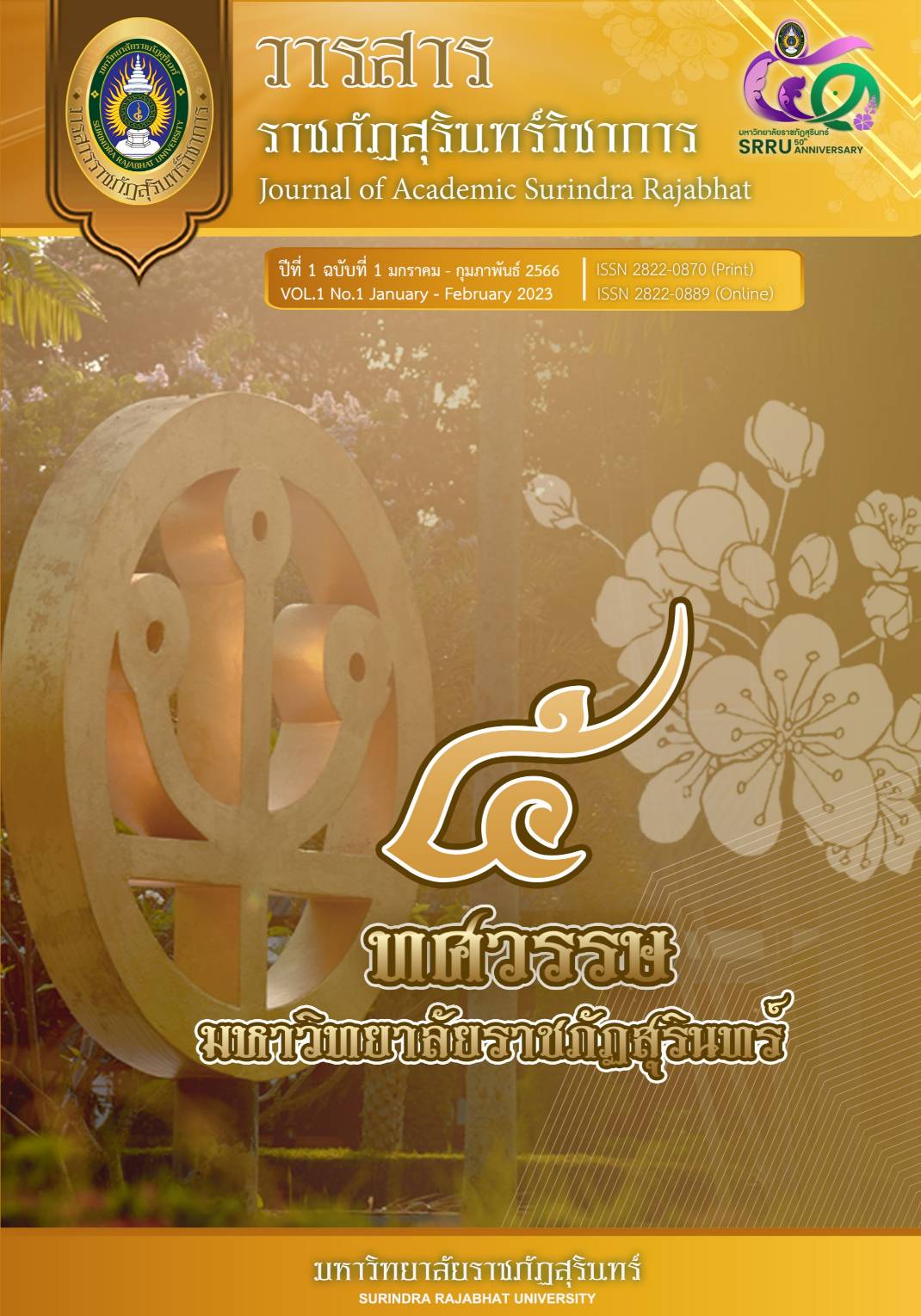The Development of Learning Achievement in Solving Mathematical Problems on Addition, Dubtraction, Multiplication, and Division of Fractions of Grade 5 Students Using KWDL Technique
Keywords:
Problem Solving, Learning Achievement, K W D LAbstract
This research aims to: 1) develop a package of exercises for solving mathematical problems on addition, subtraction, multiplication, and division of fractions for grade 5 students using the KWDL technique to be effective according to the 70/70 criteria, 2) compare learning achievement before and after organizing learning with a package of exercises to develop problem-solving skills of grade 5 students using the KWDL technique, and 3) study the satisfaction of grade 5 students with learning management. The target group used in this research is 13 students in Grade 5, academic year 2023, at Ban Nong Nam Pham School, obtained through purposive samples. The tools used in the research include a package of exercises for solving mathematical problems, a skill training quality assessment form, lesson plans, an achievement test, and a satisfaction assessment form. The statistics used in the research were mean, standard deviation, percentage, efficiency (E1 / E2) and t-test (dependent samples). The results of the research found that 1) the efficiency of the package in solving problems in the experiment with the target group found that it has an efficiency value of 74.44/73.84, which is higher than the specified criteria. 2) The learning achievement after studying is higher than before studying, with a statistical significance of.05. 3) Students are satisfied with learning management with an average of 4.92, which is the highest level of satisfaction.
Downloads
References
จิระพันธุ์ ปากวิเศษ. (2561). การพัฒนาผลสัมฤทธิ์ทางการเรียนวิชาคณิตศาสตร์ โดยใช้แบบฝึกทักษะ เรื่องการคูณ ของนักเรียนชั้นประถมศึกษาปีที่ 3. สาขาวิชาคณิตศาสตร์ คณะศึกษาศาสตร์ มหาวิทยาลัยรามคําแหง.
ชัยวัฒน์ สุทธิรัตน์. (2553). การจัดการเรียนรู้แนวใหม่ : ทฤษฎีแนวปฏิบัติและผลการวิจัย. นนทบุรี: สหมิตรพริ้นติ้งแอนด์พับลิสชิ่ง.
ซัฟฟียะห์ สาและคณะ. (2559). การจัดการเรียนรู้ด้วยเทคนิค K W D L เรื่องค่ากลางของข้อมูล ของนักเรียนชั้น มัธยมศึกษาปีที่ 5. วิทยานิพนธ์วิทยาศาสตรมหาบัณฑิต สาขาวิชาคณิตศาสตรศึกษา คณะวิทยาศาสตร์ มหาวิทยาลัยบูรพา.
ดวงสมร ดอนจันไพร. (2563). การพัฒนาผลสัมฤทธิ์ทางการเรียนคณิตศาสตร์ เรื่อง กฎเกณฑ์เบื้องต้นเกี่ยวกับการนับ โดยการจัดการเรียนรู้ด้วยเทคนิค K W D L. คณะศึกษาศาสตร์ มหาวิทยาลัยรามคำแหง.
นวลอนงค์ บุญฤทธิ์พงศ์. (2556). ระเบียบวิธีวิจัยทางการศึกษา. กรุงเทพฯ : จุดทอง.
ปรียาณ์ภัสนากร สุ่มมาตย์. (2562). การจัดเรียนรู้คณิตศาสตร์โดยใช้เทคนิค KWDL ในการแก้ปัญหาทางคณิตศาสตร์และผลสัมฤทธิ์ทางการเรียน เรื่อง โจทย์ปัญหาร้อยละ. มหาวิทยาลัยมหาสารคาม.
วัชรา เล่าเรียนดี. (2554). รูปแบบและกลยุทธ์การจัดการเรียนรู้เพื่อพัฒนาทักษะการคิด. นครปฐม: คณะศึกษาศาสตร์ มหาวิทยาลัยศิลปากร วิทยาเขตพระราชวังสนามจันทร.
วิมลรัตน์ ศรีสุข. (2551). การพัฒนากระบวนการเรียนการสอนโดยการบูรณาการรูปแบบการสร้าง มโนทัศน์กับรูปแบบการแปลง เพื่อสร้างความรู้ทางคณิตศาสตร์ และความสามารถทางการคิด แบบอุปนัยของนักเรียนมัธยมศึกษาตอนต้น. จุฬาลงกรณ์มหาวิทยาลัย.
เบญจลักษณ์ ภูสามารถและคณะ. (2563). การพัฒนาความสามารถในการแก้ปัญหาคณิตศาสตร์โดยใช้กิจกรรมการเรียนรู้เทคนิค K W D L ของนักเรียนชั้นประถมศึกาาปีที่ 5. สำนักวิทยบริการ มหาวิทยาลัยราชภัฎสารคาม.
เพิ่มพร บรรดาศักดิ์. (2561). การศึกษาผลสัมฤทธิ์ทางการเรียนรายวิชาคณิตศาสตร์ เรื่อง ความน่าจะเป็น โดยใช้แบบฝึกทักษะด้วยเทคนิค KWDL และการจัดการเรียนรู้แบบปกติ ของนักเรียนชั้นมัธยมศึกษาปีที่ 4. วิทยานิพนธ์ศึกษาศาสตร มหาบัณฑิต, มหาวิทยาลัยรามคำแหง.
ไกรวิทย์ ทาระจันทร์. (2563). การพัฒนาทักษะการแก้โจทย์ปัญหาคณิตศาสตร์ เรื่อง สมการเชิงเส้นสองตัวแปร โดยใช้เทคนิค K W D L. วารสารวิทยาศาสตร์และวิทยาศาสตร์ศึกษา. 3(2) : 134-142.
Ogle, D.M. K-W-D-L Teaching Model that Develop Active Reading of Expository Text. Reading Teacher. 39 : 564-570 ; February 1986.
Shaw, J. M., et al. (1997). Cooperative Problem Solving: Using K-W-D-L as an Organizational Technique. Teaching Children Mathematics. 3(39). 482 - 486.
Downloads
Published
How to Cite
Issue
Section
Categories
License
Copyright (c) 2024 Journal of Academic Surindra Rajabhat

This work is licensed under a Creative Commons Attribution-NonCommercial-NoDerivatives 4.0 International License.

















